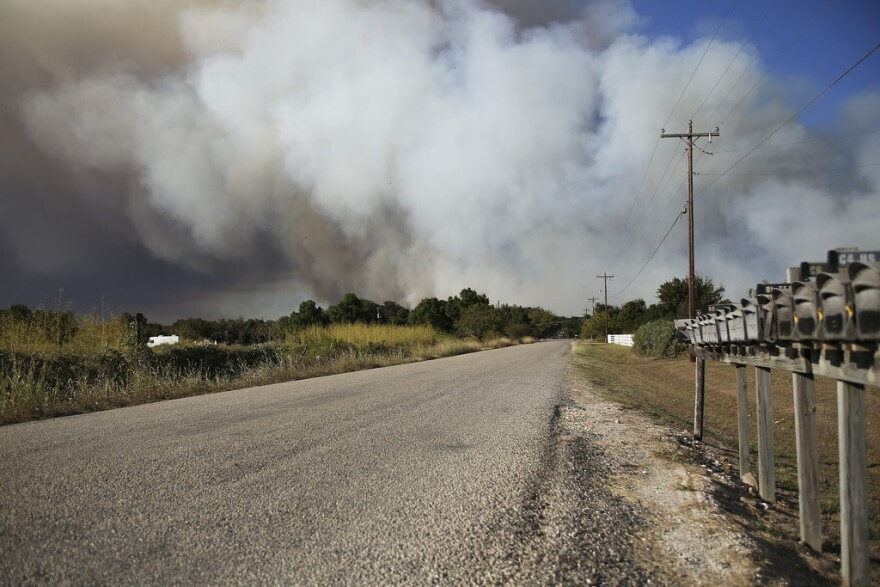Four large wildfires have broken out in Central Texas in just about a week. It’s part of a bad year for Texas fires, and climate researchers say the uptick in fires bears the fingerprints of climate change.
Statewide, it started early in the Panhandle, then the fires crept south and east into Central Texas.
“Resources are getting overwhelmed,” says Texas A&M Forest Services spokesman Logan Scherschel. More recently, he says the state has brought in resources from out of state to assist us with fighting these fires – including volunteers from out-of-state departments to fight the Park Road Fire in Burnet County, which also just received a grant from FEMA to help battle the blaze.
So why is this year so bad in Texas? It’s not just drought. Extreme heat is also to blame – especially here in Central Texas.
“One of the big contributors to that has been these last two weeks of temperatures over 100 degrees,” says Geeta Persad, a climate scientist with the Union of Concerned Scientists. “It has allowed the fuel in that area to dry out really quickly.”
She says climate change is partly to blame for that heat, meaning heavy wildfire years like this may become more or less normal in the near future.
“I feel very confident in saying Texas is in the bull’s-eye of climate change,” says Donald Falk, a forest ecologist at the University of Arizona.
Falk recently worked on a paper that suggests the burn area of wildfires will double, or even increase by as much as eight times, in parts of the Southwest over the next few decades. That has implications for all sorts of things, from where people live, to how we allocate firefighting resources when there are more fires to fight.
“That’s the big issue we’re running into right now,” says Scherschel. “It’s getting hard to get extra resources from other states, because the states in the Pacific Northwest, California and out west are taking up a lot of resources in that area, and they’re not available to come assist us.”
Some policymakers advocate things like better forest management, increasing firefighting capabilities and creating housing policies to get people out of harm’s way.
But, Falk says, there’s only one big way to prevent forest fires.
“The lesson from our research is very, very clear,” he says. “You cannot fix the fire problem without getting real and confronting climate change. Period. End of story."




